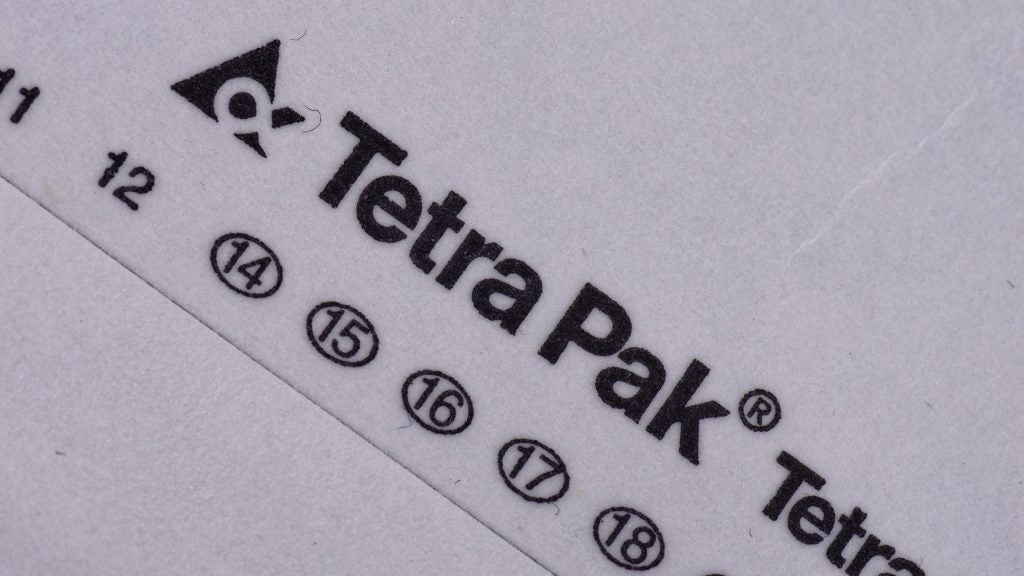Leading provider of food packaging solutions Tetra Pak is making strategic investments to enhance recycling capacity for carton packages in the EU, aligning with the proposed EU Packaging and Packaging Waste Regulation.
These investments aim to ensure the recycling of all packaging components, keeping valuable raw materials in circulation and supporting the transition to a greener food packaging sector.
Investments driving recycling expansion
In 2023, Tetra Pak invested nearly €40m ($42.9m) globally to accelerate beverage carton recycling, with plans for further increases to achieve greater material circularity.
The recent initiatives focus on boosting the EU's capacity to recycle beverage cartons, including the non-fibre protective layers of polyethylene and aluminium (polyAl).
These efforts involve forming new collaborations and enhancing the capabilities of existing recyclers.
Strategic initiatives and investments
Major investments in 2023 include:
Sweden: Tetra Pak and Axjo Group initiated a feasibility study for building a new recycling line for polyAl in Sweden, Denmark, and Norway. This state-of-the-art facility, with an annual capacity of 10,000 tonnes (t), will recycle polyAl into plastic products.
Spain: Tetra Pak and Trans Sabater expanded their agreement to increase polyAl recycling capacity from 3,000t to 10,000t per year, utilising Trans Sabater's patented mechanical recycling technology.
Spain (Alier Collaboration): Tetra Pak and Alier formed a collaboration to establish Alier as one of Europe's largest post-consumer carton recyclers, aiming to recycle over 15,000t of polyAl per year by 2025.
Netherlands: Tetra Pak invested €1m in Recon Polymers' polyAl recycling plant to increase capacity to at least 8,000t per year, advancing material circularity across multiple countries.
Commitment to sustainability
Markus Pfanner, vice-president of Sustainability Operations at Tetra Pak, emphasised the company's commitment to the circular economy and sustainable food systems.
“For us, this goes beyond industry investment. It’s part of the transformation towards a circular economy and an investment in the future of the planet.”
“Projects such as these ensure that consumers can continue to safely access food, and that once they have done so, those cartons can be recycled, keeping quality resources in the loop and reducing the use of virgin content,” Pfanner added.









